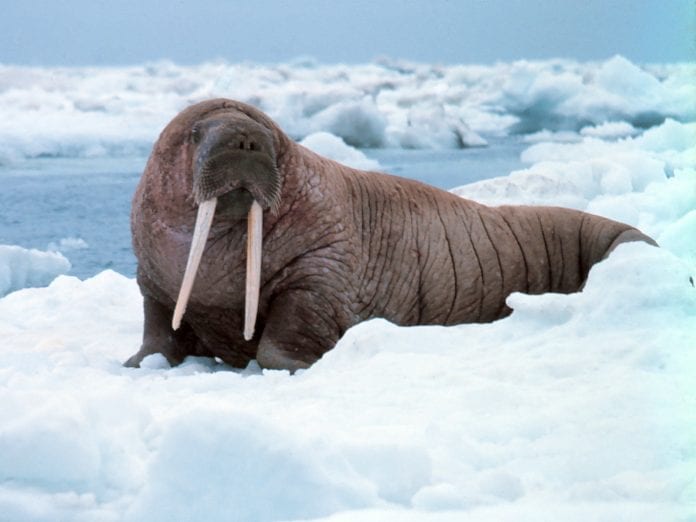A lawsuit filed March 8 in federal district court in Anchorage by the Center for Biological Diversity challenges the Trump administration’s denial of Endangered Species Act protection for Pacific Walrus.
The lawsuit comes as Arctic sea ice coverage is reaching record lows.
Listing of the Pacific walrus under ESA would provide the species with important protections, including increased protection from oil and gas development and greenhouse gas emissions driving climate change, but would not affect subsistence harvest by Alaska Natives.
Interior Secretary Ryan Zinke and James Kurth, acting director of the U.S. Fish and Wildlife Service, and the Wildlife Service, are named as defendants.
“The Trump administration’s outrageous reversal is a deathblow for the Pacific walrus,” said Emily Jeffers, an attorney with the Center. “Arctic ice is disappearing at a record rate and walruses are suffering catastrophic habitat loss. Rather than ignoring the science, the administration needs to give these magnificent creatures the protection they desperately need to survive – and legally deserve.”
The Center is asking the court to find the U.S. Fish and Wildlife Service decision violates the Endangered Species Act, is not based on the best scientific data available and otherwise is not in accordance with the law.
The lawsuit also asks the court to order the service to reconsider the listing the Pacific walrus under the ESA and to issue a new 12-month finding on a court-ordered and expeditious schedule.
In 2011, following the center’s 2008 petition to list the walrus as threatened or endangered under ESA, the USFWS determined that the Pacific walrus warranted protection under the law because climate change was destroying the sea ice habitat critical to survival of the species.
Six years later, the Trump administration reversed that decision, determining that protection for Pacific walrus was not warranted, despite strong scientific evidence that these walruses face extinction within the foreseeable future.
Summer sea ice continues to disappear from their foraging grounds in the Chukchi Sea and new models representing the international scientific consensus on climate change point to a dramatic loss of this habitat through at least the end of the century.
Pacific walruses, known to weight over 2,000 pounds depend on Arctic sea ice for courtship, birthing, nursing their young and resting during periods of foraging and molting.
Without strong action to reduce carbon pollution, scientists project that summer sea ice will disappear within the next two decades.















